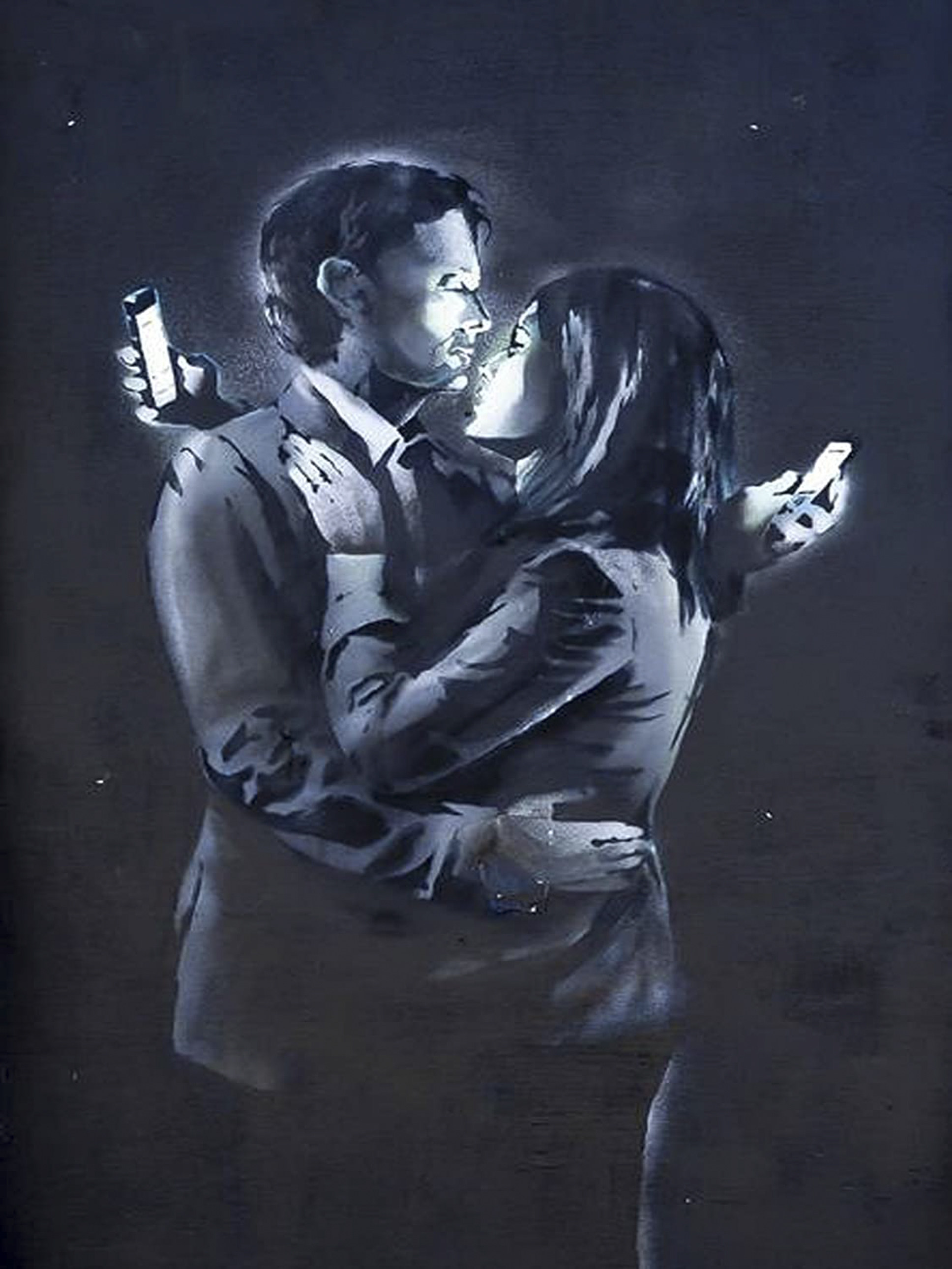
Sex or your phone – which would you rather go without? Expert relationship advice for those who said the former
- Couples often report feelings of relationship dissatisfaction, depression and attachment anxiety when technology interferes with intimacy, a psychologist says
- If you can’t turn off your phone, try making online time a joint experience instead – watch YouTube or play online games together
Banksy’s artwork Mobile Lovers, a piece that depicts a couple in a loose embrace while fixated on their smartphones, first appeared on a wall owned by the Broad Plains Boys’ Club in Bristol, in the United Kingdom, in April 2014. After the enigmatic British graffiti artist claimed credit for the artwork and donated it to the club, it was soon sold to a private collector for £403,000.
Nowadays, everywhere we turn we see real-life “mobile lovers” – couples staring at their phones instead of each other.
Dr Quratulain Zaidi, a Hong Kong-based clinical psychologist at MindnLife, says many couples are aware of their fixation but still cannot do anything to kick the habit. She adds that numerous surveys on technology and relationships have pointed to a sad conclusion.
“People would rather go without sex than their phones, which are often the last thing they touch at night and the first thing they glance at in the morning,” Zaidi says.

For some, this misplacement of intimacy is a slippery slope of distraction; for others, it offers an intentional escape from relationship pressures.
“The current abundance of technology creates too many opportunities for distraction, and this is termed as ‘technoference’,” Zaidi says.
Here’s why you should treat post-pandemic dating like a job interview
“Research shows that technoference and relational well-being are related, and the impact of technology use on the quality and satisfaction in an intimate relationship creates a negative sentiment override.
“In my practice, couples often report general feelings of relationship dissatisfaction, depression and attachment anxiety. They feel deprioritised and claim that there are fewer face-to-face interactions with one another.”
To turn things around, Zaidi suggests using technology to enhance relationships.
“Make online time a joint experience instead. Watch YouTube or play online games together so that the focus is on sharing and fostering connections.”

Similarly, phones can be used to diffuse relationship disagreements.
“Many of my clients prefer texting when working through disagreements because things tend to escalate in face-to-face interactions. Through texts, they can make their points without interruption and take the time to articulate their thoughts.”
Zaidi says that the first thing to do to build a healthy relationship with your partner alongside technology is to prioritise the relationship over technology. Second, you should be careful of using technology to avoid real-life conversations.
“If you’re engaging with someone remotely, it means you don’t have to sit down with them and observe facial expressions, tone of voice and other non-verbal cues. It’s easier to make bold statements that would be harder to say in person. So, make time for your partner in real life.”
When we are on our phones for extended periods, the same chemical pathways and reward centres in our brains light up as when one indulges in drugs or alcohol
Third, be deliberately present, she says. “Be mindful and present when you are spending that precious time with your partner. And be deliberate about creating meaningful connections and moments.
“Technology is a disruptive force to our ability to pay attention and live in the moment. People are only able to form meaningless connections and shallow experiences because deeper connections require us to be present and free of distractions.
“So turn your phone off. The virtual world will still be there when you pick up the phone again.”

Zaidi says smartphone addiction is on the rise and many are deliberately in denial about it.
“For as much good as technology can do, it should never become so powerful in someone’s life that they are psychologically dependent upon it. This has a similar impact on a relationship as any other type of addiction.
“Scientific studies have shown us that when we are on our phones for extended periods, the same chemical pathways and reward centres in our brains light up as when one indulges in drugs or alcohol.”
Don’t play the blame game: expert tips on problem-solving a relationship
In other words, treat it like any other addiction: find ways to reduce your access to it, and be transparent with those you trust.
Most smartphones are equipped with timers that limit our daily usage, so be strict with yourself and try using these features.
And while it may seem unusual, it may be advisable to seek professional help.
While a relatively recent concept in medical circles, rehabilitation centres and programmes designed for curbing technology usage are gradually becoming more commonplace. The ReStart centre in Redmond, in the US state of Washington, is one of the world’s leading centres for treating behavioural issues concerning problematic screen usage, namely for video games.
But for now, the power to disconnect from your phone and reconnect with your loved ones is literally in your hands. So put your phone down once you finish reading this article, and start by asking your partner about their day.
Luisa Tam is a Post correspondent who also hosts video tutorials on Cantonese language that are now part of Cathay Pacific’s in-flight entertainment programme

